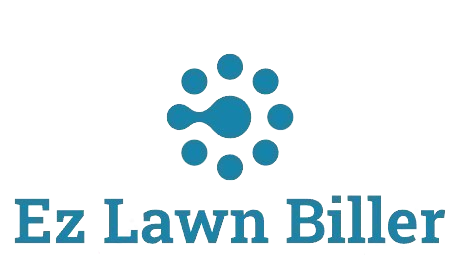The compliance landscape for lawn services can be a minefield of regulations and requirements. This guide breaks down essential steps for staying compliant, ensuring your business thrives.
The Ultimate Guide to Stay Compliant for Lawn Services
Operating a lawn service business often requires navigating a complex web of regulations and compliance requirements. Failure to adhere to these can lead to fines, legal issues, and damage to your reputation. This comprehensive guide will discuss crucial compliance aspects for lawn care businesses, including licensing, insurance, safety regulations, and environmental considerations. By understanding these elements, you’ll be better equipped to run a successful and legally compliant lawn service.
In the lawn care industry, compliance is not just about following laws; it is about ensuring the safety of your employees, your clients, and the environment. As a lawn care provider, you need to be aware of local, state, and federal regulations that can impact your operations. This guide will cover everything from obtaining the necessary licenses to managing hazardous materials and understanding employee safety protocols.
Moreover, we will explore practical tips on how to leverage technology, such as lawn billing software, to enhance your compliance processes. Keeping accurate records, automating billing, and ensuring timely payments can mitigate compliance risks significantly. Let’s dive into the main aspects of compliance for lawn services.
Understanding Licensing Requirements
One of the first steps to ensure compliance in the lawn care industry is to understand the licensing requirements specific to your location. Most states require lawn care businesses to obtain a business license, which legitimizes your operation and keeps you in good standing with local authorities.
In addition to general business licenses, many states impose specific licensing requirements for applying pesticides and herbicides. For example, you may need to pass a certification exam and maintain ongoing education credits to keep your pesticide application license active. Make sure to check with your local regulatory agency to understand the exact requirements in your area.
Moreover, some areas may have additional regulations related to tree trimming, landscaping, and irrigation work. Familiarizing yourself with these requirements and ensuring all employees are trained and certified where necessary can prevent costly fines and help you maintain a positive reputation in your community.
Insurance: Protecting Your Business
Having the right insurance coverage is vital for compliance and protecting your lawn service business from unforeseen events. At a minimum, you will need general liability insurance to cover accidents and damage that may occur during the course of your work.
Additionally, consider obtaining workers’ compensation insurance to cover medical costs and lost wages if an employee is injured on the job. Some states may legally require this coverage, so it’s imperative to check your local laws.
Other forms of insurance, such as commercial auto insurance (for vehicles used in your business) and equipment insurance, can also provide crucial protection. Regularly reviewing your insurance policies and working with a knowledgeable insurance agent will ensure you have the necessary coverage to remain compliant and safeguard your investment.
Employee Safety Regulations
Employee safety is a critical component of compliance for lawn service businesses. The Occupational Safety and Health Administration (OSHA) has specific guidelines for landscaping and lawn care operations that you must follow. These guidelines cover everything from proper training for handling equipment to using personal protective equipment (PPE).
Implementing a safety program that includes training sessions for your employees on safe equipment operation and emergency procedures can help reduce accidents and injuries. Keeping thorough documentation of all training sessions not only promotes safety but also demonstrates compliance with OSHA regulations.
Furthermore, conducting regular safety audits of your equipment and work practices can help identify potential hazards, ensuring a safe working environment for your team. When employees feel safe and are well-trained, it leads to improved morale and productivity.
Environmental Considerations
As a lawn service provider, understanding environmental regulations is crucial. Many states have specific laws concerning the use of fertilizers, pesticides, and herbicides, particularly regarding their impact on water sources and local wildlife.
Implementing environmentally friendly practices can also enhance your business’s reputation. For instance, consider using organic fertilizers or non-toxic pest control methods. Educating your clients about these options can set you apart from competitors and attract eco-conscious customers.
Additionally, be aware of regulations concerning waste disposal. Properly disposing of lawn debris, chemical containers, and hazardous waste is essential to prevent environmental damage and comply with local laws. Keeping accurate records of chemical usage can also help in demonstrating your commitment to environmental stewardship.
Leveraging Technology for Compliance
In today’s digital age, leveraging technology can significantly enhance your compliance strategies. Using lawn service software like [Lawn Biller Software](https://ezlawnbiller.com/) can automate many of the administrative tasks associated with compliance, such as invoicing, record-keeping, and client management.
With specialized software, you can easily track the services provided to each client, maintain records of pesticide applications, and ensure that your billing aligns with the services rendered. This not only simplifies compliance but also improves overall efficiency in your operations.
Moreover, utilizing a lawn service app can help employees access safety protocols and training materials on-the-go, ensuring they remain compliant with safety regulations while out in the field. By integrating technology, you can create a more efficient workflow while minimizing compliance risks.
Best Practices for Staying Compliant
Staying compliant requires ongoing effort and diligence. Here are some best practices to maintain compliance within your lawn service business:
- Regularly review and update your licenses and certifications to ensure they remain current.
- Keep thorough records of all client services, employee training, and equipment maintenance.
- Conduct periodic safety audits and employee training sessions.
- Stay informed about changes to local, state, and federal regulations that may impact your business.
- Utilize lawn service software like [Lawn Biller Software](https://ezlawnbiller.com/) to streamline your operations and maintain compliance.
By following these best practices, you can create a culture of compliance within your organization, ultimately leading to a more sustainable and successful lawn service business.
Regional Compliance Variations
Compliance standards can vary significantly from one region to another, so it’s essential to understand the local regulations in your service areas. For instance, if you’re operating in California, you’ll need to adhere to strict environmental regulations regarding water use and pesticide applications due to the state’s focus on conservation.
On the other hand, states in the Midwest may have different requirements related to lawn care equipment and safety protocols, particularly during winter months when snow removal services may be offered. Tailoring your compliance strategies to fit the specific needs of your region can prevent legal issues and enhance your service delivery.
Conclusion
Compliance is a critical component of running a successful lawn service business. By understanding the regulations concerning licensing, insurance, employee safety, and environmental practices, you can create a robust framework to protect your business and enhance your reputation.
Utilizing technology, such as lawn service software like [Lawn Biller Software](https://ezlawnbiller.com/), can streamline your compliance processes and improve overall operational efficiency. Remember, staying compliant not only protects your business but also ensures the safety of your employees and the environment.
Finally, remain proactive about compliance by regularly reviewing your practices, staying informed about changes in regulations, and investing in continuous training for your team. By doing so, you’ll not only meet legal requirements but also position your lawn service business for long-term success.




